2010
Biographies of speakers

Edgar Buckley
Senior Vice-President for EU, NATO and European Cooperation, Thales Group
Dr. Edgar Buckley currently is the Senior Vice President of Thales. He is also Director of Thales Raytheon System Ltd an Vice Chair of the Network Centric Operations Industry Consortium. He joined Thales in September 2003 following a career in the British governmental and international organisation service. From 1999 until 2003, he was the NATO Assistant Secretary General for the Defence Studies in 1990 and conducted and Efficiency Study on Defense Equipment Decision-Making and Reorganization Study on the Defence Policy Staff in 1991. Before joining the Ministry of Defence, he worked for a short period as a teacher in London, where he was born and educated. In 1999, he was appointed Companion of the Order of Bath.

Robert Cottrell
Editor of TheBrowser.com
Robert Cottrell is editor of TheBrowser.com, and a former staff correspondent for The Economist and the Financial Times. He was Moscow bureau chief for The Economist in 1995-1998, and for the Financial Times in 2001-2003. He is a regular contributor to the New York Review of Books, mainly on Russian topics. He has written two studies on European Union enlargement for the Economist Intelligence Unit. He lives in Riga, where he is a co-founder of the Isaiah Berlin Association
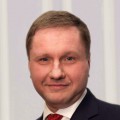
Konstantin von Eggert
Carnegie Moscow Center, Member of the Advisory Board of ,,Pro et Contra’’ Journal
Konstantin von Eggert is a Russian political analyst and journalist. He is Contributing Editor of the Russian edition of “Newsweek”. In 2009-2010 he worked as Vice-President for Public and Government Affairs for ExxonMobil Russia Inc., having been in charge of relations with the Russian Government, communications, political and economic analysis and charity projects. In 1998-2009 Mr. von Eggert was Senior Correspondent, and then Editor-in-Chief of the BBC Russian Service Moscow bureau. He also presented “Utro na BBC” (“BBC Morning”), the Russian Service flagship morning news and current affairs program. While with the BBC, Mr. von Eggert spearheaded live coverage of some of the most dramatic events of the last decade, including resignation of Russian President Boris Yeltsin, Moscow theatre hostage taking in 2002, Pope John Paul II visit to Ukraine and US Presidential elections in 2008. In 1992 - 1998 Mr. von Eggert was Diplomatic Correspondent, and later Deputy Foreign Editor of Izvestia daily. His assignments included, among other areas, the Middle East, Iraq, Iran, Tajikistan, Afghanistan and the Balkans. He also wrote on Russia-related issues for the "International Herald Tribune", “The Times” of London, "Atlanta Journal and Constitution", "Milliyet", "Helsingin Sanomaat", and “La Croix” and appeared on CNN, BCC, ARD and other major TV networks.
Mr. von Eggert started his career in the media in 1990 as a reporter for the Moscow daily “Kuranty” after discharging from the national army service. He has spent his army years (1987-1990) as translator of Arabic with the Russian military advisors’ mission in Sana’a, Yemen.Konstantin von Eggert is a member of the Royal Institute of International Affairs (London); member of the Editorial Board of “Pro et Contra”, the Carnegie Moscow Centre journal; member of the editorial board of the “Security Index” quarterly of the Centre for Political Studies in Russia. He is a regular lecturer at the Geneva Centre for Security Policy, Royal College of Defense Studies in London and Wilton Park (UK). Mr. von Eggert is recipient of Russian journalism prizes, including the 2006 “Verbum Aurum” award of the Russian Media Union. Konstantin von Eggert is an honours graduate of the Moscow University Institute of Asian and African Studies (M.A. in history and Arabic language). He speaks English, French and Arabic.
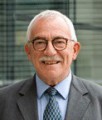
Uffe Ellemann-Jensen
Chairman of Baltic Development Forum
Uffe Ellemann-Jensen was Denmark’s minister for foreign affairs 1982-93. He was national chairman of Denmark’s Liberal Party (“Venstre”) 1984-98, and President of the European Liberal Party (ELDR) 1995-2000. He was a co-founder of Baltic Development Forum in 1998 and has been its chairman since then.
Uffe Ellemann-Jensen has been a consistent supporter of both NATO and the European Union and of close relations with the U.S., often in the face of constant political battles with the left-wing opposition in Denmark and in other European countries. He was an active participant when the Baltic countries regained their independence in 1989. His proactive approach to Danish foreign policy continued after his eleven-year term as foreign minister.
After leaving politics he joined a number of Danish and international companies as non-executive director: He is a director and trustee of Thomson-Reuters Founders Share Company. He is chairman of The Foreign Policy Society (Denmark), member of European Council of Foreign Relations and a trustee of International Crisis Group. Uffe Ellemann-Jensen is an adjunct professor at Copenhagen Business School. He has written a number of books on economics and politics – and fly fishing.
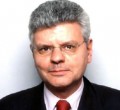
Michel Foucher
Director of Studies, The Institute for Higher National Defence Studies, France
Michel Foucher is a geographer, diplomat and essayist who was born in 1946. He obtained his PhD at Sorbonne University in 1986. Currently he is a Professor of geography and geopolitics at the Ecole Normale Supérieure (Paris Ulm). He has also been a lecturer at the College of Europe in Natolin, Warsaw (1994-2002), consultant to the European Commission, advisor to La Lyonnaise de Banque, mission leader for DATAR and advisor to the Minister of Foreign Affairs (1998-2002), director of the Centre for Analysis and Policy Planning of the Ministry of Foreign Affairs (1999-2002) and French ambassador to Latvia (2002-2006). He is a member of the scientific committee of the Robert Schuman Foundation and, since February 2006, has been ambassador-at-large for EU affairs. He has written, directed or participated in some 20 works on geopolitical issues and cultural geography. His most influential work is undoubtedly "Fronts et frontières" (1988, 1991). He also edited two thought-provoking atlases, "Fragments d’Europe" (1998) and "Asies nouvelles" (2002). In 2009 he published the book L' Europe et l’avenir du monde".
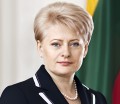
Dalia Grybauskaitė
President of the Republic of Lithuania
Dalia Grybauskaitė has graduated from the University in Leningrad, faculty of political economy. After completing her studies as economist and lecturer of political economy, she returned to Vilnius and for a few months worked as a secretary in charge in the society "Žinija" under the then Academy of Sciences. She was Head of the Agriculture Division at Vilnius High Party School in 1983-1984, and later, in 1985-1990, a lecturer at the Department of Political Economy on the political economy and the world history of money. In 1988, she defended a scientific thesis at the Moscow Academy of Public Sciences. In 1991 she completed a special program for senior executives at the Georgetown University in Washington.
In 1991, she became a Programme Director in the Prime Minister's Office of the Republic of Lithuania and 1993; she became Director of the Economic Relations Department at the Ministry of Foreign Affairs. A year later she was appointed the Extraordinary Envoy and Plenipotentiary Minister at the Lithuanian Mission to the EU. In the 1 May 2004 under a resolution passed by the Government of the Republic of Lithuania, she was delegated to work in the European Commission. She was appointed EU Commissioner in charge of financial programming and budget of the European Union. After spending one-year in the European Commission, she was elected "Commissioner of the Year 2005". In May 17, 2009 Dalia Grybauskaitė was elected President of the Republic of Lithuania.
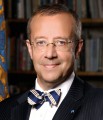
Toomas Hendrik Ilves
President of the Republic of Estonia
President Ilves was born on December 26, 1953, in Stockholm, Sweden. President Ilves graduated from Columbia University and received his Master’s degree in Psychology from the University of Pennsylvania. Toomas Hendrik Ilves was a teacher and researcher at Columbia University in New York City and at the Open Education Center in Englewood, New Jersey. He worked as a researcher and Head of the Estonian Desk at Radio Free Europe in Munich, Germany. He served as Ambassador of the Republic of Estonia to the United States of America, Canada, and Mexico from 1993 until 1996. From 1996 to 1998, he was Minister of Foreign Affairs of the Republic of Estonia. After a brief period as Chairman of the North Atlantic Institute (1998), he was again appointed Minister of Foreign Affairs. From 2002 until 2004, he was a Member of the Parliament of the Republic of Estonia, and from 2004 until 2006, he was Member of the European Parliament. Toomas Hendrik Ilves was elected President of the Republic of Estonia on September 23 and sworn into office on October 9, 2006.
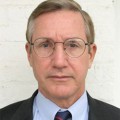
Bruce Pitcairn Jackson
President of the Project on Transitional Democracies
Bruce Pitcairn Jackson is the President of the Project on Transitional Democracies, an NGO which supports the countries of the Balkans and former Soviet Union in their aspiration for closer relations with Europe. He was one of the founders of the US Committee on NATO and the Committee for the Liberation of Iraq. Previously, he served in US Army Intelligence in a series of positions in the Office of the Secretary of Defense, as a global market strategist in the proprietary trading division of Lehman Brothers, and as Vice President of Strategy and Planning at Lockheed Martin Corporation. His most recent article is “A Turning Point for Europe’s East” in April/May Policy Review which examines the new geo-economic realities of Ukraine.

Bronisław Komorowski
President of the Republic of Poland
Bronisław Komorowski has graduated from the Department of History at the University of Warsaw. From 1980 to 1981 he worked for the Centre of Social Investigation of NSZZ "Solidarity". Starting from 1982 he was an editor of an independent underground magazine ‘ABC’ (which stands for the Adriatic Sea, the Baltic Sea and the Black Sea) which was dealing with the problems of the East and Central-East Europe. He was also the president of the Foundation for Helping Polish Libraries, the president of the board of the Euro-Atlantic Association as well as the president of Maritime and River League. Since 1989 he has held several government posts. From 1990 to 1993 he was a civil deputy minister for national defence specialising in educational and social issues in the governments of Tadeusz Mazowiecki, Jan Krzysztof Bielecki and Hanna Suchocka. Between 1997 and 2000 he presided over the Parliamentary National Defence Committee. Between 2000 and 2001 he was the minister of national defence in the government of Jerzy Buzek. Since 2001 he was the deputy chairman of the Parliamentary National Defence Committee and a member of Parliamentary Committee for Foreign Affairs. Since 2001 he has been a member of Civic Platform in which he held the function of the chairman of the Mazowsze Region and since 2006 has been the deputy chairmain of the party. In October 2005 he was elected Deputy Speaker for the 5th Lower House of Parliament but on 2007 in the first session of the 6th Lower House of Parliament Bronisław Komorowski was elected Speaker by 292 votes. He has been elected as the president of Poland on June 10, 2010.
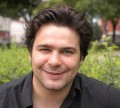
Mark Leonard
Director of the European Council on Foreign Relations
Mark Leonard is Co-Founder and Director of the European Council on Foreign Relations, the first pan-European Think Tank. Previously, he worked as Director of Foreign Policy at the Centre for European Reform, and Director of the Foreign Policy Centre, a think-tank he founded under the patronage of the former British Prime Minister Tony Blair. Mark has spent time in Washington as a Transatlantic fellow at the German Marshall Fund of the United States, and in Beijing as a visiting scholar at the Chinese Academy for Social Sciences. He is a prolific writer and commentator, with work appearing in many top publications. His first book, "Why Europe will run the 21st Century", has been translated into 19 languages. Mark’s second book, “What does China think?” was published in February 2008 and has been translated in to 14 languages. Mark’s recent publications for the European Council on Foreign Relations include “New World Order: The Balance of Soft Power and the Rise of Herbivorous Powers”, “A Power Audit of EU-Russia Relations”, “Can the EU win the Peace in Georgia?” and “Re-wiring the EU-US Link”, all available from the website at www.ecfr.eu.
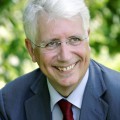
Imants Lieģis
Minister of Defence of the Republic of Latvia
Imants Lieģis has been Minister of Defence of Latvia for the past year and a half. Until the formation of the current Government in March 2009, he spent 17 years working as a career diplomat in Latvia's Foreign Ministry with a strong focus on Defence and Security issues. He was Ambassador to NATO for 7 years, including when Latvia joined the Alliance in 2004.He spent 3 years as Latvia's Ambassador to the EU Political and Security Committee and served as Ambassador to Spain, Belgium, the Netherlands and Luxembourg. Before joining Latvia's Diplomatic Service in 1992, Minister Lieģis worked as a Solicitor in England for 10 years, having obtained a degree in Law (LLB) from the University of Newcastle Upon Tyne. Between 1989 and 1991 he was the European Representative of the Baltic World Council, when he lobbied European Institutions on the Baltic States' efforts to regain there independence and bring an end to their illegal occupation by the Soviet Union. Since April 2010 Imants Lieģis has also been Acting Minister of Justice. He is a candidate in the upcoming elections in the political grouping "Vienotība"("Unity").

Julian Lindley-French
Member of the Strategic Advisors Group, Atlantic Council and Professor at the Royal Military Academy of the Netherlands
Julian Lindley-French is Eisenhower Professor of Defence Strategy at the Netherlands Defence Academy, Special Professor of Strategic Studies at the University of Leiden and Senior Associate Fellow of the Defence Academy of the United Kingdom. He is Head of the Commander’s Initiative Group (CIG) for NATO’s Allied Rapid Reaction Corps (ARRC) in which he is leading efforts to operationalise the Comprehensive Approach. A member of the Strategic Advisory Group of the Atlantic Council of the US in Washington he was formerly a Course Director at the Geneva Centre for Security Policy and European Co-Chair of the US-European Working Group on Stabilisation and Reconstruction Missions for CSIS and is currently Project Leader for the Atlantic Council’s Stratcon 2010 project on the NATO Strategic Concept. He is also an Associate Fellow of both the Royal Institute for International Affairs, (Chatham House) in London and the Austrian Institute for European and Security Policy in Vienna. Born in Sheffield, Yorkshire, England in 1958 he is an Oxford historian and Oxford Blue. He received a Masters Degree in International Relations (with distinction) from UEA and holds a doctorate in political science from the European University Institute. He has lectured in European Security at the Department of War Studies, Kings College London, and therein was Deputy Director of the International Centre for Security Analysis (ICSA). He was Senior Research Fellow at the EU Institute for Security Studies in Paris and acted as a consultant to NATO in Brussels where in 1999 he was recognised for outstanding service.
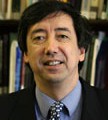
Bobo Lo
Independent Scholar and Consultant
Bobo Lo is an independent scholar and consultant. His previous positions include Director of the Russia and China Programmes at the Centre for European Reform (CER); Head of the Russia and Eurasia Programme at Chatham House; and Deputy Head of Mission at the Australian Embassy in Moscow. Dr Lo writes extensively on Russian foreign and security policy, with a particular focus on Sino-Russian relations. His books include Axis of Convenience: Moscow, Beijing and the New Geopolitics (Brookings and Chatham House, 2008), Vladimir Putin and the Evolution of Russian Foreign Policy (Blackwell and Chatham House, 2003), and Russian Foreign Policy in the Post Soviet Era: Reality, Illusion and Mythmaking (Palgrave Macmillan, 2002). Among his recent writings are ‘China and the global financial crisis’ (CER, April 2010), ‘Russia, China and the United States – from strategic triangularism to the post-modern triangle’ (Institut Français des Relations Internationales, February 2010), ‘Medvedev and the new European Security Architecture’ (CER, July 2009); ‘Russia’s crisis – what it means for regime stability and Moscow’s relations with the world’ (CER, February 2009); and ‘Ten things everyone should know about the Sino-Russian relationship’ (CER, December 2008). Bobo Lo is an Alumnus of the World Economic Forum’s Network of Global Councils. He has an MA from Oxford and a PhD from the University of Melbourne.
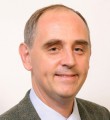
Edward Lucas
Deputy Editor, Central and Eastern Europe Correspondent for the Economist
Edward Lucas is currently Deputy Editor, International Section, Central and Eastern Europe correspondent for The Economist. He has been covering central and Eastern Europe since 1986. He was based in the Baltic states from 1990 to 1994, covering the collapse of the Soviet Union and, from 1992, as the managing editor of The Baltic Independent, a weekly English-language newspaper published in Tallinn. He holds a BSc from the London School of Economics, and studied Polish at the Jagiellonian University, Cracow. Edward Lucas offers uniquely valuable insights into the political and economic climate of the former communist countries and how current trends will affect the West. He also is an expert on energy security and on Russian foreign and security policy. Edward is the author of an important, sobering and controversial book about how the new Russia threatens the world, especially economically, and what the world should be doing about it “The New Cold War”. The New Cold War: Putin’s Russia and the Threat to the West looks penetratingly at how the Kremlin has used the tools of autocracy and their new energy wealth to build a popular ‘stability’ at home and extend dangerous power back into its former satellites and beyond.
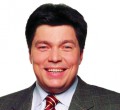
Mikhail Margelov
Chairman of the Committee on Foreign Affairs of the Federation Council of the Russian Federation
Mikhail Margelov is Chairman of the Committee on Foreign of the Federation Council of the Federal Assembly of the Russian Federation, as well as the Chairman of the European Democrat group of the Parliamentary Assembly of the Council of Europe. He was re-elected to the Federation Council to represent Pskov in December 2004.
Prior to his service in the Council, Mr. Margelov served as a consultant to President Vladimir Putin’s electoral headquarters in 2000, and was Director of the Russian Information Center (Rosinformcentr) from its creation in October 1999 until 2000. From May 1998 to September 1999, he was a Manager at RIA-Novosti. Mr. Margelov was Head of the Public Relations Department of the Presidential Administration from 1997 to 1999, after having served as Chief Coordinator for Advertising during President Boris Yeltsin’s 1996 re-election campaign. From 1990 till 1995 he served at the representations of American consulting companies World Resourser, Boston Consulting Group, Bain & Company, where he was dealing with the investments on the CIS territory, post-privatisation restructing of former state-owned enterprises etc. Mr. Margelov is a graduate of the Institute of Asian and African Countries, which is affiliated with the Moscow State University. He fluently speaks English and Arabic.
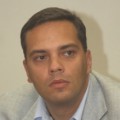
Vladimir Milov
Head of the Independent Institute of Energy Policy in Moscow
Vladimir Milov is a publicist, economist, energy expert and politician representing the the opposition in Russia. Born in 1972, he graduated from the Moscow State Mining University in 1994 as a mining engineer. Mr. Milov has a professional background that foremostly focuses on energy issues. In 1997-2002, he occupied different positions in the Russian governmental institutions, being responsible for energy policy and energy reforms.
In 1997 he joined the Federal Energy Commission of Russia, the natural monopoly regulator, where he was responsible for design of the basic regulatory legal and methodological framework for electricity and gas sectors up to 2001. In 2002 he served as a Deputy Minister of Energy of Russia. During his work in the Russian Government, Mr. Milov was responsible for development of major structural reform concepts for Russian electricity and railroad sectors. He also developed the concept of market restructurization of Gazprom, which later was banned by President Vladimir Putin. In 2003-2008, Milov founded and chaired an independent energy policy think tank - Institute of Energy Policy. Milov is also a regular columnist of two major Russian political and business editions: Vedomosti and Gazeta.Ru. In 2008 he published a critical report on the 8 years of Vladimir Putin’s presidency “Putin. The Results” (together with Boris Nemtsov) thus joining political opposition in Russia. Since February 2010, Milov is the leader of the opposition movement “The Democratic Choice”.

Nils Muižnieks
Director of Advanced Social and Political Research Institute, University of Latvia
Nils Muiznieks is director of the Advanced Social and Political Research Institute, the think tank of the Faculty of Social Sciences at the University of Latvia, and chairman of the European Commission against Racism and Intolerance (ECRI), the Council of Europe's independent racism monitoring body. He has written extensively on Latvian-Russian relations and minority rights, integration and racism in Latvia and Europe. His most recent publications include three edited volumes: How Integrated is Latvian Society? An Audit of Successes, Failures and Challenges (2010), Manufacturing Enemy Images? Russian Media Portrayal of Latvia (2008) and Latvian-Russian Relations: Domestic and International Dimensions (2006). He is currently editing a new book entitled The Geopolitics of History in Latvian-Russian Relations. From 2002 to 2004 he was Minister of Social Integration in the government of Latvia. He has a PhD in political science from the University of California at Berkeley, USA.
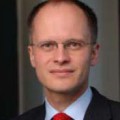
Alexander Pivovarsky
Senior Economist, Office of the Chief Economist, European Bank for Reconstruction and Development
Alexander Pivovarsky is a Senior Economist at the European Bank for Reconstruction and Development, where he leads economic analysis of Eastern Europe and Caucasus, policy dialogue with the authorities. He has worked on the region-wide joint IFI initiative to help stabilize European banking groups operating in the emerging European countries and currently represents the EBRD in the economic pillar of the EU’s new Eastern Partnership policy initiative. From 2001 to mid-2008, he worked at the International Monetary Fund as macroeconomist for various countries in Eastern Europe, Latin America, Africa and Central Asia. He co-authored the EBRD’s 2009 Transition Report: Transition in Crisis? and is the author, together with Jeffrey Sachs, of Economics of Transition: Lessons for Ukraine (Kyiv: Osnovy Publishers, 1997). His operational work at the EBRD is focused primarily on the financial sector issues. He is a Ukrainian national, graduated from the University of Kyiv in 1993, and holds a Ph.D. in public policy from Harvard University (2001).
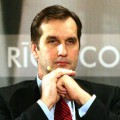
Māris Riekstiņš
Ambassador-at-Large, Former Minister of Foreign Affairs of the Republic of Latvia
Māris Riekstiņš began his career in the Foreign Ministry of Latvia in 1992 when he took on the position of the Director of the Western Europe Division. In 1993, he became the Under-secretary of State and eventually the State Secretary of the Foreign Affairs Ministry. He remained in that position until his posting as the Ambassador of Latvia to the United States in 2004, and non-resident Ambassador to Mexico in 2006. For most of 2007 Mr. Riekstiņš was Chief of Staff to the former Prime Minister of Latvia Mr. Aigars Kalvitis. In November 2007 Mr. Riekstiņš was elected to the post of the Minister of Foreign Affairs of Latvia and held this position until April 2010. Since then he has been nominated Ambassador-at-Large at the Ministry of Foreign Affairs and is actively involved in coordination of foreign affairs of the political alliance “For A Good Latvia!”
In his career Mr. Riekstiņš has also been Head of the Latvian delegation for accession into NATO, Chairman of the advisory council for Latvia’s membership into the WTO and has led the delegation for the U.S.-Baltic Partnership Charter. Mr. Riekstiņš has a law degree from the University of Latvia.

Alan Riley
The City Law School, City University London
Professor Alan Riley has written extensively on EU and Russian energy markets. He focuses principally on the interaction of energy liberalisation and the impact it can have on energy security. His recent papers include, The Russian Gas Deficit: Consequences and Solutions (2006) CEPS Brussels; Out of Gas (with Frank Umbach) DGAP Berlin 2007; Energy Security, Gas Market Liberalisation and our Energy Relationship with Russia (2007) European Parliament, Foreign Affairs Committee paper; Nordstream and Economic and Market Analysis of the North European Pipeline Project (2008-2009) European Parliament Foreign Affairs Committee paper; EU-Energy Liberalisation-Coming to a Member State Near You (2008) Competition Law Review; De-Weaponising the Energy Weapon, House of Commons Defence Select Committee (2009); Can Nordstream and Southstream Survive in a Changing Gas Market? OGEL Special Issue EU-Russia Relations (2009); The Yukos Decision: Profound Implications for the EU-Russia Energy Relationship? (2009) CEPS Brussels. He is currently writing a book on energy security and market liberalisation.

Jānis Sārts
State Secretary, Ministry of Defence of Latvia
Mr. Sārts is the current State Secretary of the Ministry of Defence of Latvia. He started his career in the Ministry of Defence in 1994 and within three years of service, in 1997, he was appointed as a director of the Defence Policy Department. From 1999 until 2000, Mr. Sārts was in charge of the elaboration of the Latvia’s NATO Membership Action Plan (MAP). He also served as Acting State Secretary during State Secretary’s leave from 1999 until 2001, being appointed as Deputy State Secretary for Defence Planning in September 2000. From 2002 until 2007, Mr. Sārts served as a Defence Advisor in Latvia’s Missions to NATO and EU. In 2007, until the nomination to the current post in November, he served as Deputy State Secretary for Defence Planning. In 1994 Mr. Sārts received a Bachelor’s Degree in History from the University of Latvia, but in 1999 he graduated from the NATO Defence College.

Simon Serfaty
Zbigniews Brzezinski Chair in Global Security and Geostrategy, Senior Adviser, Europe Program, Center for Strategic and International Studies
Professor Simon Serfaty is a prolific writer on transatlantic and intra-European issues. Some of his most recent books include Architects of Delusion: Europe, America, and the Iraq War (2008), Vital Partnership: Power and Order (2005), La tentation impériale (2004), and many others. He is also the editor and principal author of many other books prepared various groups of American and European experts and personalities he gathered to work on major issues of vital interest to the United States and the states of Europe. These include, most recently, A Recast Partnership? Institutional Dimensions of Transatlantic Relations (2008) and Visions of the Atlantic Alliance (2005). Professor Serfaty is currently writing a book on the post-Western world and its implications for U.S. and European interests and policies. An occasional witness for the U.S. Congress and some legislative bodies in Europe, including the European Parliament, he holds a PhD in political science from the Johns Hopkins University. Born in Casablanca, Morocco, and a naturalized U.S. citizen since 1965, Professor Serfaty was made a Knight of the Legion of Honor by French President Nicolas Sarkozy in July 2008. The first holder of the Zbigniew Brzezinski Chair in Global Security and Geopolitics at the Center for Strategic & International Studies, where he previously directed the Europe Program (1994-2004), Dr. Serfaty is also a professor of US foreign policy and Eminent Scholar at Old Dominion University in Norfolk, Virginia.
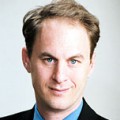
Jeremy Shapiro
Special Advisor to the Assistant Secretary for Europe and Eurasia Affairs at the Department of State, U.S.
Jeremy Shapiro joined the Bureau of European and Eurasian Affairs as the Senior Advisor in December 2009. Mr. Shapiro’s work in the Bureau focuses on providing strategic guidance to the Assistant Secretary for European and Eurasian Affairs. Prior to joining the State Department, Mr. Shapiro was the research director of the Center of the United States and Europe (CUSE) at the Brookings Institution and a fellow in foreign policy studies. He was also a non-resident senior policy fellow at the European Council on Foreign Relations and an adjunct professor in the Security Studies Program at Georgetown University. He also served from June 2009 to July 2009, on General Stanley McChrystal’s Initial Assessment Team that recommended a new strategy for the NATO efforts in Afghanistan. He is the author several books and monographs, including Toward a Post-American Europe (2009) with Nick Witney. He has published numerous articles on European and strategic affairs in various newspapers and journals including the New York Times, The Financial Times, and The Washington Post. Mr. Shapiro graduated from Harvard University with a B.A. in Computer Science and received his M.A. in International Relations and International Economics from the Johns Hopkins School of Advanced International Studies. He is a Ph.D. candidate in Political Science at Massachusetts Institute of Technology (MIT).
Vladimir Socor
Senior Fellow, The Jamestown Foundation
Vladimir Socor is a Senior Fellow of the Jamestown Foundation in Washington and its flagship publication, Eurasia Daily Monitor, where he writes a daily analytical article. An internationally recognized expert on the former Soviet-ruled countries in Europe, the South Caucasus, and Central Asia, he covers Russian and Western policies there, focusing on regional security issues, secessionist conflicts, energy policies, and NATO policies and programs. Mr. Socor is a frequent speaker at U.S. and European policy conferences and think-tank institutions as well as a regular guest lecturer at the NATO Defense College and at Harvard University's National Security Program's Black Sea Program. He is also a frequent contributor to edited volumes. Mr. Socor was previously an analyst with the Radio Free Europe/Radio Liberty Research Institute (1983-1994). Vladimir Socor received a Bachelor of Arts in History from the University of Bucharest, and a Master of Philosophy in East European History from Columbia University in 1977. He worked as an analyst for the Radio Free Europe/Radio Liberty Research Institute in Munich (1983–1994) and the Jamestown Foundation in Washington D.C. (1995–2002), and then as a senior fellow at the Institute for Advanced Strategic and Political Studies in Washington, D.C. (2002–2004). Since 2000, he contributes a regular column to the European edition of The Wall Street Journal.
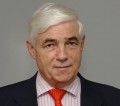
Michael Stürmer
Chief Correspondent, Welt-Gruppe, Berlin
Professor Michael Stürmer is columnist for WELT-Gruppe, Berlin, and visiting profesor at SAIS Bologna. A historian by training, he held a chair of medieval and modern history at Erlangen-University, was a long - time foreign policy advisor to Chancellor Helmut Kohl and, from 1988 - 1998, head of Stiftung Wissenschaft und Politik (Research Institute for International Affairs) in Ebenhausen. Books and articles on European history 19th and 20 century, material culture of 17th and 18th century Europe, international affairs and security. Member of IISS, Officer of the Legion d'Honneur
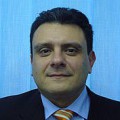
Dimitrios Triantaphyllou
Co-convener and Co-rapporteur of the Commission on the Black Sea
Dr. Dimitrios Triantaphyllou is the co-convener and co-rapporteur of the Commission on the Black Sea. He was until recently Director General of the International Centre for Black Sea Studies (ICBSS), a position he held since January 2006. He will be taking up a new assignment at Kadir Has University in mid-September. He holds a B.A. in Political Science and History from the University of California, Berkeley and an M.A. and Ph.D. in International Relations from the Fletcher School of Law and Diplomacy, Tufts University. He was previously Assistant Professor of International Relations at the University of the Aegean in Rhodes (2006-2010); Special Advisor at the Ministry for Foreign Affairs of the Hellenic Republic (2004-2006); Senior Research Fellow at the Hellenic Observatory of the European Institute at the LSE (2003-2004); Senior Research Fellow at the Institute for Security Studies of the European Union, Paris (2001-2003); Research Fellow at the Institute for Security Studies of the Western European Union, Paris (1999-2001); Deputy Director of the Hellenic Foundation for European and Foreign Policy (ELIAMEP), Athens (1996-99); and Foreign Policy Advisor to a member of the European Parliament (1995). He has written and edited a number of books and articles pertaining to foreign policy and international relations. He is also Associate Editor of the Journal of Southeast European and Black Sea Studies, a member of the Greek-Turkish Forum and a member of the Governing Board of the European Studies Institute which is based in Moscow.

Tomas Valasek
Director of Foreign Policy and Defense, Centre for European Reform
Tomas Valasek is director of foreign policy and defence at the Centre for European Reform; a private, London-based, think-tank. Previously, he served as policy director and head of policy planning at the Slovak ministry of defence (2006-2007). Before joining the government, Mr Valasek founded and directed the Brussels office of the World Security Institute (WSI), a Washington-based defence think-tank (2002-2006). From 1996 to 2002 he worked as senior Europe analyst in WSI’s Washington office. Mr. Valasek is the author or co-author of ‘NATO, new allies and reassurance’ (CER policy brief, May 2010), ‘Why Ukraine matters to Europe’ (CER essay, 2009), co-author of ‘Preparing for the multipolar world: European foreign and security policy in 2020’ (CER essay, 2007) as well as many other articles appearing in newspapers and journals including the Financial Times and the Wall Street Journal. Mr Valasek serves on the advisory board of the Slovak Atlantic Committee and on the editorial boards of Panoráma bezpečnostného prostredia and Strategické štúdie, Slovak defence policy journals.
Grigol Vashadze
Foreign Minister of the Republic of Georgia
Grigol Vashadze was born in Tbilisi, on 19 July 1958. He graduated with honours from Moscow State Institute of International Relations, faculty of international law 1981. From 1981 until 1988 he worked at the Ministry of Foreign Affairs of the Soviet Union, Department of International Organisations, Department of Cosmos and Nuclear Weapons. In 1990 he graduated from the Diplomatic Academy as a post-graduate student. From 1990 until 2008 he was engaged in private business and headed the companies founded by himself: 'Georgia Arts Management' and 'Gregory Vashadze and BR'. On November 1, 2008 he was appointed Minister of Culture, Monument Protection and Sport and on February 6, 2008 he was appointed Deputy Minister of Foreign Affairs of Georgia.
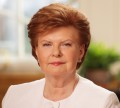
Vaira Vīķe-Freiberga
Vice-chair of the Reflection Group on the Future of Europe in 2020-2030 Time Horizon, Former President of Latvia (1999-2007)
Dr. Vaira Vike-Freiberga was President of the Republic of Latvia (1999-2007) and Vice-president of the Reflection group on the long term future of the EU (2007-2010). She is active in international politics and was named Special Envoy to the Secretary General of United Nations in 2006. Dr. Vike-Freiberga has been Professor of psychology at the University of Montreal and President of various Canadian and international professional and scholarly associations. She is a member of the Club of Madrid, the Council of Women World Leaders, and the European Council on Foreign Relations. She has received many highest Orders of Merit, medals and awards including the 2005 Hannah Arendt Prize and the 2009 Hayek Medal for promotion of freedom.
Hans-Friedrich von Ploetz
German Representative in the Group of Experts for Drafting NATO’s New Strategic Concept
Ambassador von Ploetz retired from the German Foreign Service in 2005, following a long and distinguished career as a diplomat. Between 2002 and 2005 he was Ambassador of Germany to the Russian Federation and, prior to this, he was German Ambassador to the United Kingdom. In the early 1990s he was Permanent Representative of Germany on the North Atlantic Council, having been promoted from the position of Deputy Permanent Representative. Ambassador von Ploetz has also occupied a number of senior positions at the German Ministry of Foreign Affairs, heading departments dealing with transatlantic and European security issues. He was educated at the University of Marburg and received his doctorate in law in 1967. In 2009 he was appointed as a Member of the Group of Experts for Drafting NATO’s New Strategic Concept.
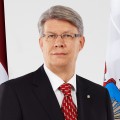
Valdis Zatlers
President of the Republic of Latvia
President Valdis Zatlers was born in Rīga, Latvia, in 1955. He is a graduate of the Rīga Institute of Medicine, where he received his degree as a physician in 1979. Dr Zatlers received professional training in orthopaedics at Yale University and Syracuse University in the United States in 1991. He worked as a trauma specialist and orthopaedist from 1979 and 1985 and then as head of the Traumatology Department from 1985 until 1994 at the Rīga No. 2 Hospital. From 1994 until 2007, he served as director and then board chairman of the State Hospital of Traumatology and Orthopaedics. In 1993, Dr Zatlers received an award from the International Arthroscopy Association (IAA) for his contributions toward the development of this field of treatment in developing countries. From 1995 until 1999, he was the Latvian co-ordinator for an aid project from Switzerland.
In 1986, as a medical service officer, Dr Zatlers travelled to Chernobyl, Ukraine, to help deal with the aftermath of the nuclear disaster that took place there. During the National Awakening of the late 1980s, Dr Zatlers became an activist in the Latvian Medical Association and the establishment of the Latvian People’s Front. He was a board member of the former and a council member of the latter organisation.
In 2007, Dr Zatlers was elected President of Latvia. He is a Commander of the Order of Three Stars, a holder of the Order of Viesturs, First Class, and the recipient of the Cross of Recognition, First Class. President Zatlers has taken a keen interest in security policy. He views national security in the context of the Euroatlantic collective security system. This approach entails not just benefits, but also responsibilities, including active participation in international missions such as ISAF in Afghanistan, both via military resources for stabilisation and civilian efforts aimed at the country’s development.















